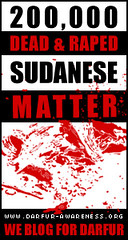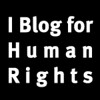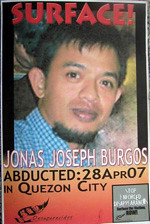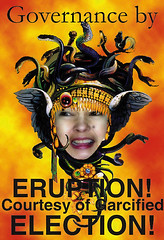The Orwellian Manifesto
"The meaning of our struggle is to be able to return to freedom. First you must return to freedom. So that all segments of our community, whether from the Left or from the Right, will have the right to speak. And in that open debate, in that clash of debate in the marketplace, we will produce the clash between the thesis and the antithesis—and we will have the synthesis for the Filipino people.”
The idea of a creeping tyranny forms the crux of RA 10175 or the new Cybercrime Prevention Act of 2012. It’s much too real and risky to be a laughing matter. The powers it claims for government not only flatters itself undeservedly, it opens our private lives to more intrusions than what our two hands could parry. Think about it: where we spend our days amid the warmth of loved ones, while conversing with friends online, there government will be, just right next to us, watching clandestinely, and lying in wait for what we will do next. No greater than mere suspicion is all that’s needed to bring down a jail term of twelve years in one fell swoop. It is set as a precedent for invasion, with all the power, resources and malevolence tyrant governments have at their disposal.
More than the simple violation of our right to privacy, RA 10175 is in essence a criminal incursion into our lives; criminal because it is unconstitutional. The chilling effect is being felt everywhere. Recently, it was reported that Asian governments and netizens were closely monitoring Filipino protests against RA 10175. They fear this law could become a paradigm of how things would be in cyberspace for the future. Hence, losing this battle for our voice is synonymous to destroying what defines us as free individuals in a new frontier. A draconian law like this, once in control of cyberspace, could take forever to untangle. Imagine the bedlam once it spills over into real-time.
It is expected of any State possessed with delusions of grandeur to restrict the voice of the governed, whatever medium it chooses to control. Hitler did it. Stalin did it. Idi Amin went further down by eating his enemies. No other voice matters to a tyrant but its own. The forged hero worship of those around him feeds the pride and aggrandized opinion of himself. As he basks in his own self-worth, thinking he could do no wrong, the air around him is then charged with hubris. He begins to count his days in power in multiple centuries, thinking he is the answer to all things. What began as motives good and true turn tragically, for the would-be tyrant, to messianic self-importance. Every single tyrant in history—from Ceaușescu to Marcos—thought saving the world was their deific calling, to instil some discipline into freedom’s chaos. Marcos’ New Society was a model of that idea. Little did these people realize that as soon as they sit over all they surveyed, the first that needed saving was the one whose ass was on the chair.
It doesn’t really take much to grasp how power corrupts—and corrupts absolutely. It begins at the very moment a leader—one democratically elected or otherwise—becomes conscious of his ‘otherness’: that sense of distinctness from all the rest. Much as a king would declare himself god over his subjects. That feeling of transcendence begins to eat away the very notion of his being a man among men, like acid on skin. The slow, painful fall from grace begins when he or she feels that the world, even heaven, owes him all things. It’s a declaration of mutiny against the proper order. What is rarely admitted in cases like this is that the erring government leader is the true rebel in its most hideous form. No wonder the same rebellion he or she initiates against freedom gives birth to the very revolution that would soon topple the tyrant’s throne.
Once that sense of distinctness fully blooms, the natural result is the need for secrecy. For power to be wielded with absolute, unquestionable swing, there ought to be things left unsaid. No shape or form of darkness can live under a flicker of light. Transparency makes tyranny weak; secrecy feeds its black bones. The wielding of absolute power can only thrive under the guise of a benevolent face in order to conceal its wicked intentions. And this is where the irony comes in. One can tell if a government is preparing for a creeping tyranny: when it begins to breach the privacy of the governed if only to preserve its own.
Significant to the preservation of government’s policy of secrecy is a public gagged into submission. Nowhere is this best explained than in history’s account of the breach of freedom of expression. This policy forms the backbone of an autocratic two-faced monolith: only the voice of the State matters. This is government’s answer to the chaos and racket democracy naturally gives birth to. Sa ikauunlad ng bayan, disiplina ang kailangan was Martial Law’s battle cry for the better part of two decades. This unforgiving milieu kept the press under Marcos’ thumb for years. What Marcos, with all his brilliance, failed to catch was freedom’s basic tenet: no one can legislate character. This remains true even when discipline is direly wanting.
Had a conversation recently with a wise old sage of the courts. He made his point clear: "Government should kill RA 10175. There is a principle followed in all democratic institutions. Remember how it is better to let loose a hundred guilty persons than to jail an innocent one? The idea holds true for every democratic belief. A hundredfold abuse of a right is always tolerable than the need to curtail it. Because in a democracy, the law was always meant to defend the people, not to discipline them. Discipline and responsibility are never functions or intents of laws; they belong to gut-wrenching personal ethics. That's why democracy belongs to mature leadership. And since democracy is the antithesis of a monarchy or any autocratic government, it is rightfully assumed that real freedom means less government intrusion."
The philosopher Cicero pointed out how disingenuous discipline by legislation comes off to many in society: “The wise are instructed by reason, average minds by experience, the brute by instinct, and the stupid by necessity.” What added insult to injury was Martial Law’s presumption: we are all stupid, thus requiring discipline by necessity.
Yet, in so far as discipline is concerned, history teaches that it is government in general that is wanting in discipline and restraint, since the same is more prone to the lure of power than society is to the charms of freedom. A public steeped in poverty often gives up liberties to the need for food on the table, education for its young, money for its health. Even a cursory reading of historical narratives reveals that freedom has always been our last thought, the final solution when all else had failed. Nevertheless, government insists quite mistakenly that we need discipline more than it does.
RA 10175 and the inclusion of online libel is a wound that reveals a disease deeper than what critics could readily diagnose. Government is beginning to see itself as society’s redeemer, thus creating its own plan of redemption. Author Octavio Paz sees this as the genesis of a fall: “Every moribund or sterile society attempts to save itself by creating a redemption myth,” wrote Octavio Paz in The Labyrinth of Solitude. Clearly, this is the road being taken by government in justifying RA 10175, positioning itself as the be-all and end-all of who and what we are, and who and what we should become. This law doesn’t only bully us into silence, it presumes to tell us what we should say, if at all we choose to open our mouths. Nothing could be more criminal than to presume how we should think for ourselves and speak on our behalf.
Yes, it is criminal to suppress expression. Why? Because expression is the sole genius of man, the one thing that keeps society from falling off the threshold of insanity. Freedom alone fuels it. George Orwell, author of the ‘Big Brother’ fame, 1984, curiously expands on man’s indubitable birthright in his novel: “Curiously, the chiming of the hour seemed to have put new heart into him. He was a lonely ghost uttering a truth that nobody would ever hear. But so long as he uttered it, in some obscure way, the continuity was not broken. It was not by making yourself heard but by staying sane that you carried on the human heritage."
Big Brother’s slogan in Orwell’s 1984 ought to remind us of what some governments are forcing us to believe: that “War is Peace,” “Freedom is Slavery,” and “Ignorance is Strength”. This is the Orwellian Manifesto, the modern powers’ oath and religion of silence.
The novel offers us a foretaste of the inevitable return to dictatorship, if and when freedom is once more chained: “In the vast majority of cases there was no trial, no report of the arrest. People simply disappeared, always during the night. Your name was removed from the registers, every record of everything you had ever done was wiped out, your one-time existence was denied and then forgotten. You were abolished, annihilated: vaporized was the usual word.”
Middle of this year, the United Nations declared internet freedom as a basic human right. One report said:
“All 47 members of The United Nations’ Human Rights council signed a resolution to this effect Thursday, unanimously backing the notion that freedom of expression online is a basic human right. ‘The same rights that people have offline must also be protected online, in particular freedom of expression, which is applicable regardless of frontiers and through any media of one’s choice,” reads the report, issued by the U.N. Friday. The same report also calls upon leaders to ‘promote and facilitate access to the Internet’ and recognizes ‘the global and open nature of the Internet as a driving force in accelerating progress towards development in its various forms.’ The passing of this resolution is hailed as ‘momentous’ by individual ambassadors.”
Nothing could be more detrimental to the cause of individuality and uniqueness of man than to give in to silence, or self-censorship out of fear, or worse, the notion that peace can only be had when a society speaks and thinks the same way. The force behind our struggle for identity and existence begins and ends where freedom of expression expands above us as our blue and dark sky. We of the thunderous clash of millions of voices find synthesis in our uniqueness, not in cultic conformity. Thus, to speak liberally within the pied frontiers of real time and cyberspace, is to declare ourselves forever free. In no less this milieu are freedom and humanity best served.
More than the simple violation of our right to privacy, RA 10175 is in essence a criminal incursion into our lives; criminal because it is unconstitutional. The chilling effect is being felt everywhere. Recently, it was reported that Asian governments and netizens were closely monitoring Filipino protests against RA 10175. They fear this law could become a paradigm of how things would be in cyberspace for the future. Hence, losing this battle for our voice is synonymous to destroying what defines us as free individuals in a new frontier. A draconian law like this, once in control of cyberspace, could take forever to untangle. Imagine the bedlam once it spills over into real-time.
It is expected of any State possessed with delusions of grandeur to restrict the voice of the governed, whatever medium it chooses to control. Hitler did it. Stalin did it. Idi Amin went further down by eating his enemies. No other voice matters to a tyrant but its own. The forged hero worship of those around him feeds the pride and aggrandized opinion of himself. As he basks in his own self-worth, thinking he could do no wrong, the air around him is then charged with hubris. He begins to count his days in power in multiple centuries, thinking he is the answer to all things. What began as motives good and true turn tragically, for the would-be tyrant, to messianic self-importance. Every single tyrant in history—from Ceaușescu to Marcos—thought saving the world was their deific calling, to instil some discipline into freedom’s chaos. Marcos’ New Society was a model of that idea. Little did these people realize that as soon as they sit over all they surveyed, the first that needed saving was the one whose ass was on the chair.
It doesn’t really take much to grasp how power corrupts—and corrupts absolutely. It begins at the very moment a leader—one democratically elected or otherwise—becomes conscious of his ‘otherness’: that sense of distinctness from all the rest. Much as a king would declare himself god over his subjects. That feeling of transcendence begins to eat away the very notion of his being a man among men, like acid on skin. The slow, painful fall from grace begins when he or she feels that the world, even heaven, owes him all things. It’s a declaration of mutiny against the proper order. What is rarely admitted in cases like this is that the erring government leader is the true rebel in its most hideous form. No wonder the same rebellion he or she initiates against freedom gives birth to the very revolution that would soon topple the tyrant’s throne.
Once that sense of distinctness fully blooms, the natural result is the need for secrecy. For power to be wielded with absolute, unquestionable swing, there ought to be things left unsaid. No shape or form of darkness can live under a flicker of light. Transparency makes tyranny weak; secrecy feeds its black bones. The wielding of absolute power can only thrive under the guise of a benevolent face in order to conceal its wicked intentions. And this is where the irony comes in. One can tell if a government is preparing for a creeping tyranny: when it begins to breach the privacy of the governed if only to preserve its own.
Significant to the preservation of government’s policy of secrecy is a public gagged into submission. Nowhere is this best explained than in history’s account of the breach of freedom of expression. This policy forms the backbone of an autocratic two-faced monolith: only the voice of the State matters. This is government’s answer to the chaos and racket democracy naturally gives birth to. Sa ikauunlad ng bayan, disiplina ang kailangan was Martial Law’s battle cry for the better part of two decades. This unforgiving milieu kept the press under Marcos’ thumb for years. What Marcos, with all his brilliance, failed to catch was freedom’s basic tenet: no one can legislate character. This remains true even when discipline is direly wanting.
Had a conversation recently with a wise old sage of the courts. He made his point clear: "Government should kill RA 10175. There is a principle followed in all democratic institutions. Remember how it is better to let loose a hundred guilty persons than to jail an innocent one? The idea holds true for every democratic belief. A hundredfold abuse of a right is always tolerable than the need to curtail it. Because in a democracy, the law was always meant to defend the people, not to discipline them. Discipline and responsibility are never functions or intents of laws; they belong to gut-wrenching personal ethics. That's why democracy belongs to mature leadership. And since democracy is the antithesis of a monarchy or any autocratic government, it is rightfully assumed that real freedom means less government intrusion."
The philosopher Cicero pointed out how disingenuous discipline by legislation comes off to many in society: “The wise are instructed by reason, average minds by experience, the brute by instinct, and the stupid by necessity.” What added insult to injury was Martial Law’s presumption: we are all stupid, thus requiring discipline by necessity.
Yet, in so far as discipline is concerned, history teaches that it is government in general that is wanting in discipline and restraint, since the same is more prone to the lure of power than society is to the charms of freedom. A public steeped in poverty often gives up liberties to the need for food on the table, education for its young, money for its health. Even a cursory reading of historical narratives reveals that freedom has always been our last thought, the final solution when all else had failed. Nevertheless, government insists quite mistakenly that we need discipline more than it does.
RA 10175 and the inclusion of online libel is a wound that reveals a disease deeper than what critics could readily diagnose. Government is beginning to see itself as society’s redeemer, thus creating its own plan of redemption. Author Octavio Paz sees this as the genesis of a fall: “Every moribund or sterile society attempts to save itself by creating a redemption myth,” wrote Octavio Paz in The Labyrinth of Solitude. Clearly, this is the road being taken by government in justifying RA 10175, positioning itself as the be-all and end-all of who and what we are, and who and what we should become. This law doesn’t only bully us into silence, it presumes to tell us what we should say, if at all we choose to open our mouths. Nothing could be more criminal than to presume how we should think for ourselves and speak on our behalf.
Yes, it is criminal to suppress expression. Why? Because expression is the sole genius of man, the one thing that keeps society from falling off the threshold of insanity. Freedom alone fuels it. George Orwell, author of the ‘Big Brother’ fame, 1984, curiously expands on man’s indubitable birthright in his novel: “Curiously, the chiming of the hour seemed to have put new heart into him. He was a lonely ghost uttering a truth that nobody would ever hear. But so long as he uttered it, in some obscure way, the continuity was not broken. It was not by making yourself heard but by staying sane that you carried on the human heritage."
Big Brother’s slogan in Orwell’s 1984 ought to remind us of what some governments are forcing us to believe: that “War is Peace,” “Freedom is Slavery,” and “Ignorance is Strength”. This is the Orwellian Manifesto, the modern powers’ oath and religion of silence.
The novel offers us a foretaste of the inevitable return to dictatorship, if and when freedom is once more chained: “In the vast majority of cases there was no trial, no report of the arrest. People simply disappeared, always during the night. Your name was removed from the registers, every record of everything you had ever done was wiped out, your one-time existence was denied and then forgotten. You were abolished, annihilated: vaporized was the usual word.”
Middle of this year, the United Nations declared internet freedom as a basic human right. One report said:
“All 47 members of The United Nations’ Human Rights council signed a resolution to this effect Thursday, unanimously backing the notion that freedom of expression online is a basic human right. ‘The same rights that people have offline must also be protected online, in particular freedom of expression, which is applicable regardless of frontiers and through any media of one’s choice,” reads the report, issued by the U.N. Friday. The same report also calls upon leaders to ‘promote and facilitate access to the Internet’ and recognizes ‘the global and open nature of the Internet as a driving force in accelerating progress towards development in its various forms.’ The passing of this resolution is hailed as ‘momentous’ by individual ambassadors.”
Nothing could be more detrimental to the cause of individuality and uniqueness of man than to give in to silence, or self-censorship out of fear, or worse, the notion that peace can only be had when a society speaks and thinks the same way. The force behind our struggle for identity and existence begins and ends where freedom of expression expands above us as our blue and dark sky. We of the thunderous clash of millions of voices find synthesis in our uniqueness, not in cultic conformity. Thus, to speak liberally within the pied frontiers of real time and cyberspace, is to declare ourselves forever free. In no less this milieu are freedom and humanity best served.
Convict Shirt graphic courtesy of: A.a. Almonte, BMPM Staff

any other purposes without exception, email exclusively for article updates only.

























0 Speak Out:
Post a Comment